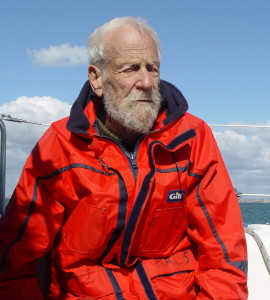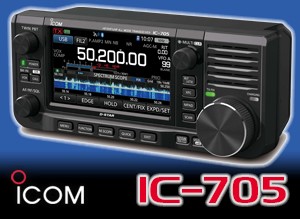Richard Brett-Knowles, G3AAT, March 2015
Richard Brett-Knowles, G3AAT (B-K to his many friends) died in early March at the age of 91.
Born in 1924, he was educated at Wellington School, where his abilities were recognised and, in those happy days before official obsession with health and safety prevented pupils from having any practical hands-on experience of technology at school, he was given the freedom of the science labs out of hours and built many interesting and useful things. As a result, in 1941, he went up to take a degree in Physics at St Catharine’s College, Oxford in a two year accelerated program for those whose scientific talents were urgently needed for the war effort. After passing his finals he left Oxford for Malvern in such a hurry that he did not actually receive his degree for fifty years – he received both his BA and his MA together in 1991.
During the war he worked on H2S and other airborne radar at TRE Malvern and was involved with the development of the magnetron. He knew all the great names and was scathing about the aircraft crash that killed Alan Blumlein. Towards the end of the war he learned to fly and spent time behind enemy lines in the Netherlands as a member of the RAF, researching German radar technology for TRE, for which he was decorated by the Dutch after the war.
He was licensed as G3AAT when amateur licences became available again after the war and was an enthusiastic amateur for the rest of his life. He was on the air in a local net only a few hours before the stroke that killed him.
He joined the Navy in 1946 as an instructor officer and took part in the British North Greenland Expedition (BNGE) of 1952-54 as Communications Officer with the rank of lieutenant commander, for which he was awarded, as were all the expedition members, the Polar Medal. He was licensed in Greenland by the Danish authorities as G3AAT/OX and operated as an amateur whenever possible, using his service equipment.
On his return to the UK he taught physics and sailing at Dartmouth Naval College before leaving the Navy to join the Admiralty Surface Weapons Establishment (ASWE), where he was involved with the Sea Slug missile and other projects. After taking early retirement he worked as an electronics consultant in the aerospace industry – several of his designs are still flying in various Airbus aircraft.
In view of his scientific and historical experiences the British Library interviewed him in 2012 as part of their “Voices of Science” project and all ten hours of interview, both audio and transcript, are available on line, together with short excerpts of particular interest.
He was an enthusiastic lecturer and gave frequent lectures on the theory and early history of radar, and on life on the Greenland icecap during the BNGE. He was a long-time member of the RSGB Technical Forum, reviewing RadCom articles, and lectured at at least one RSGB Convention.
B-K was an unforgettable figure, very tall, bearded, always enthusiastic and technically knowledgeable. When I started to write this obituary I was deluged with anecdotes from his many friends, some of which are now included in the obituary on the RSGB website.
I learned a lot from B-K and I believe I am a stronger person in consequence. I’m sad that I will not see him again but his personality formed part of my character and therefore will always be with me.
My thanks for contributions from Lorna Boucher, Duncan & Roslyn McMillan, Tony Purser, Richard Stockwell, G0UTY, G3RZP, G3TXF, G3ZVC (KF6C), G4EVE, K1DG, & M0KTT
Tribute by James Bryant, G4CLF
Category: Silent Keys











